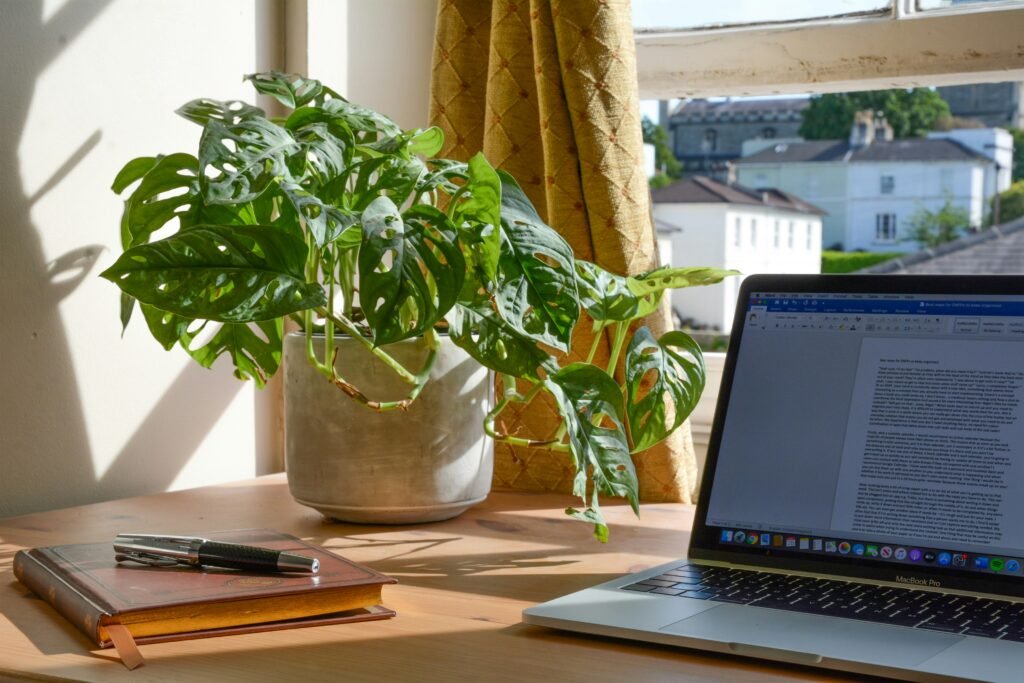
Why ADHD Brains Lose Cleaning Motivation & How to Avoid It Entirely—Clean With ADHD Part 5
As the lucky owner of an ADHD brain that “gets bored easily,” you’ve probably been criticized—by yourself or others—for not being able to keep things organized or clean. You likely think you lack willpower, discipline, or the ability to maintain habits, because that’s really what it feels like. And it would make sense, especially if you’ve lived through the seemingly never-ending cycle of messy → clean → messy → clean. And what you’ve been told, read all over the internet, or seen in hundreds of self-deprecating YouTube Shorts, Instagram Reels, or TikToks only seems to confirm that “reality.”
I bet, at some point—or many points—you’ve felt ashamed, thinking “What’s wrong with me? Why do I keep doing this to myself? I want it to be clean!!” You’ve probably looked it up and read that’s it’s your ADHD’s fault—that it’s just a fact of life for you, thanks to your ADHD brain’s poor executive function or working memory deficits.
By the end of this post, you’ll realize that you can stop insulting yourself and actually start patting yourself on the back, because this “problem” is really a sign of something amazing about your brain.
What I mean is this: The real reason you struggle to keep your rooms clean—and the reason you always seem to “sabotage your progress” has nothing to do with laziness, willpower, or character flaws. It’s simply because your brain is an incredible learning machine that’s designed to seek out new learning opportunities. And once it’s finished learning something, it wants to move on to the next new thing.
Your brain wants to constantly improve its internal model of the world in order to make it more accurately match reality. And with this knowledge we can see that the “sabotage” is completely avoidable. Which means that you, even without meds, even with “severe ADHD” can actually keep everything clean. For good.
Let me explain what I mean.
The Magic of Prediction Errors
Your brain is constantly building an internal model of the world so it can predict what the world looks like and what’s going to happen next.
Think about it: If your brain wasn’t doing this, then if you put your jacket on your bed after you got home, then walked out of the room, you could never remember where it was, and wouldn’t find it until you actually saw it again. Every single time.
To avoid that, your brain stores a temporary image of your bed with the jacket on it so you can predict where it is later and find it again. Without this ability, the world would be super confusing and terrifying! Everything would be a surprise!
But your brain is constantly learning about your environment in order to prevent confusion like that. It is constantly learning so it can make those predictions, and it always wants to improve them too. It does that so when reality doesn’t match the prediction, it will immediately notice the difference. That difference has a name: prediction error. It’s what drives learning—and it comes with a hit of dopamine.
What’s great about that is that prediction errors tell your brain that there’s an opportunity for reward nearby. Why? Because prediction errors are signs that there is an opportunity to update your mental model to match reality more accurately. And that’s the definition of learning.
Cleaning as a Learning Process
Let’s move on to what happens when you clean a room that has been messy for a while.
Before you clean, the image your brain has stored of that room looks like the room in its messy state. So when you walk in the room, your brain is going to expect that it is messy. It predicts that your room will look like the stored image.
Now when you clean it, your brain doesn’t immediately update the mental image with an exact replica of the current (clean) state of the room. That takes a while. So for some time, the image still resembles the messy room. That means, when you walk back in, your brain gets surprised:
“Whoa! This is not what I expected! I thought it was going to be messy in here!”
That surprise is a positive prediction error, and it feels amazing. It’s rewarding, and your brain thinks: “I love this. I want more of this.” And that makes you want to keep the room clean in order to continue getting that feeling.
But here’s the catch: the more times you see the room in the new clean state, the more your brain updates its internal model.
So, after a while, when you walk into the room, instead of getting excited because it looks better than you thought, your brain starts to think: “Okay. It looks exactly like I predicted. Nothing interesting here.”
Over time, your mental image of the room changes until it becomes just as clean as the real room. Now, when you walk in—there’s no surprise anymore. There’s no longer a prediction error. At that point, your brain has finished learning how the room looks, and can accurately predict what the room looks like. Which is exactly what it was trying to do the whole time.
But what does that mean for you?
…It means no burst of dopamine!
Why You Lose Interest in Keeping It Clean
You probably already knew that ADHD brains are wired to seek novelty (=learning). And now you probably understand that once your brain has fully updated its model of the room and there’s nothing new to learn, the room stops being interesting.
You walk in and don’t even really see the room anymore because it matches your prediction perfectly. It feels neutral—or even negative because you got used to getting a reward (prediction error) every time you walked in. You used to enjoy going there. But now you barely get anything.
Meanwhile, cleaning takes effort. Without that exciting prediction error payoff, there’s no longer a strong reason to continue caring about that room. Your attention moves to something new that offers fresh learning opportunities—often resulting in you abandoning upkeep of the room, which leads to it getting messy again.
This isn’t sabotage. It’s not laziness.
It’s your brain doing exactly what it’s designed to do:
- Learn quickly
- Build accurate models of the world
- Seek out new learning once it’s mastered the old
- Not waste mental resources on things that aren’t interesting (unchanging /don’t provide learning opportunities)
But what about that other thing that happens?
The Other Kind of Sabotage
Let me reiterate: Once your mental model matches reality, the room really starts to feel stale.
This is when many people with ADHD get the urge to do things like:
- Reorganize all the cabinets
- Move the furniture around
- Repaint the walls
- Completely redo the entire room
While this can be rewarding and feel great if it’s planned well and actually completed, it very often leads to:
- Endless half-finished projects
- Clutter from constant reorganization
- The feeling that it’s “never done” or “not quite right”
That’s because your brain is trying to force prediction errors to make the space interesting again. To get the rewards back. But without a good plan and follow-through, it creates chaos rather than joy.
The ADHD Brain Is Amazing at Learning
This isn’t a flaw. It’s a feature.
Your brain is amazing at learning. It lives for learning. It adapts quickly. It notices subtleties and differences. It loves to improve its internal models and master new environments.
That’s why it gets bored with unchanging situations—it has already learned them!
How to Hack Your Brain to Avoid Sabotage: Inject Novelty
So how do you keep a clean room interesting (=rewarding) for your brain?
You manually create new prediction errors to give it the ability to learn again.
My personal favorite ways to do this are:
- Adding a vase of fresh flowers that I change every week (different flowers each time)
- Rotating houseplants between rooms
- Using seasonal/holiday decorations: throw blankets, couch pillows, candles, framed pictures
Here’s how it goes:
- Right away, your brain sees that something is different and pleasant. → Positive prediction error. Dopamine burst.
- It begins to update its model to include the changes. → Starts learning the new model.
- After a while, the change is no longer surprising. It stops being interesting. → Learning complete. Finished updating the model.
- You swap the item out for something that re-introduces novelty → New prediction error. Learning begins again.
Lather, rinse, and repeat.
By intentionally introducing novelty, you keep the environment interesting, and your brain stays engaged.
It’s Not Willpower—It’s Learning
The struggle to keep your environment clean doesn’t come from you being lazy or undisciplined. It’s a sign that your brain has completed learning how the environment looks—and now it wants to direct its attention to other things.
Your rooms becoming messy again isn’t a failure on your part. It’s actually evidence of an incredible brain that craves knowledge, adapts quickly, and wants to keep learning forever.
When you understand this, you can work with your brain—adding small, regular changes that give your information-hungry mind something new to learn, over and over. By following the advice that I gave you earlier in this cleaning series, and periodically introducing controlled novelty to your rooms, you can make the task of keeping your rooms clean absurdly easy, and being in those rooms a source of endless joy.
So try it out: Read blog posts 1-4 of this series (here) if you haven’t already, follow the advice I gave in them, add controlled novelty, and create new learning experiences for your brain as often as you need so you never get ”bored” of that space again.
Now you know something that most people don’t: how to design your space in a way that naturally motivates your brain to keep it clean—without willpower, discipline, guilt, or struggle. While others are still trying to force habits, and beating themselves up when they don’t stick, you’ve unlocked the door to a whole different kind of life.
Because you don’t need more willpower. Your brain just needs something new to learn. And you know that now. You have upgraded.
The solution isn’t to try harder. It’s to design your space in a way that sparks curiosity—again and again.
That’s how you keep your brain engaged, and that’s how you keep your space clean—for good.
TL;DR
- Your ADHD brain loses its motivation to clean once it learns what the clean room looks like.
- No more prediction errors = no more surprise = no more dopamine = no more motivation.
- That’s not laziness or sabotage—it’s your brain doing what it loves to do—learning.
- Fix it be injecting controlled novelty: small, intentional changes your brain doesn’t expect.
- Buy or create bouquets, rotate plants, update decor—anything to create fresh prediction errors.
- These mini surprises create prediction errors and give your brain something to learn again—keeping up motivation.
- More willpower is not the solution. You just need to understand how your brain works.
- Design your space in a way that keeps your brain interested, and keeping things clean will become absurdly easy.
Coming up:
- How to bounce back from setbacks & avoid the spiral into chaos: here
- How to clean big messes without getting overwhelmed
Photo by Annie Spratt on Unsplash



